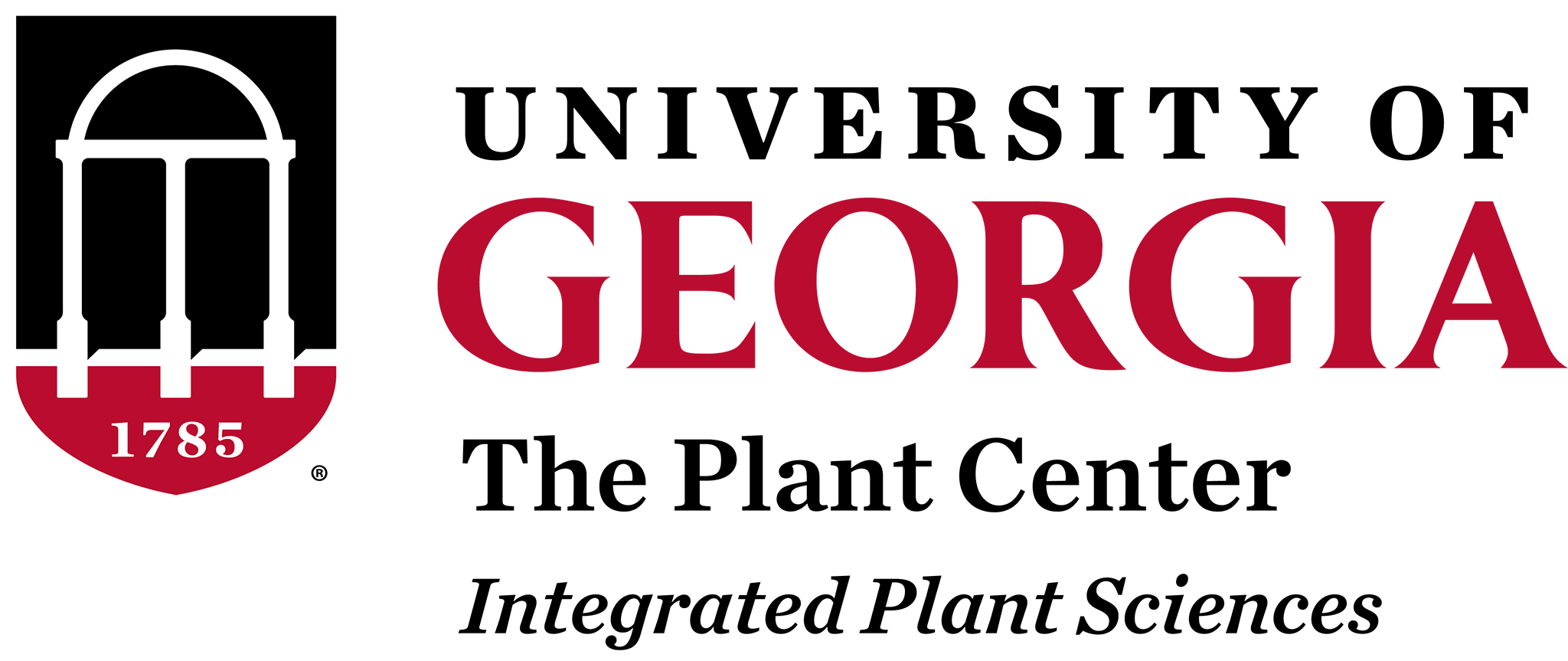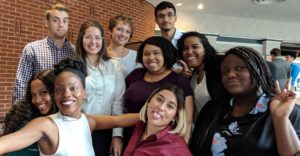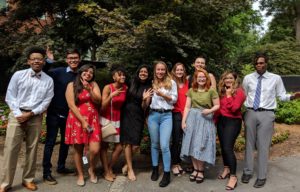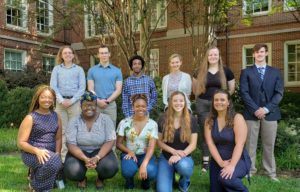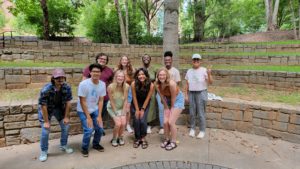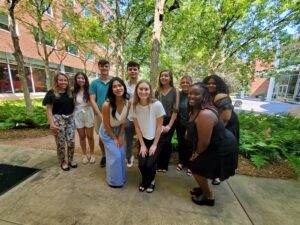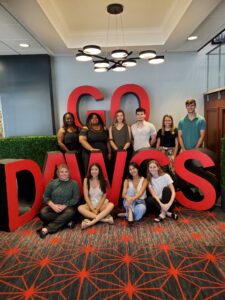Undergraduate Research

Faculty affiliated with the Plant Center are committed to training the next generation of scientific researchers.
Plant Center faculty have been very successful in undergraduate training, with hundreds of examples of students who have worked in member labs as a stepping stone to prepare the for graduate school or a career in a biomedical field. There are also countless examples of students who began with an interest in medicine only to change their minds and go on to become successful plant scientists. Visit our member page to find faculty research areas that align with your interests. Contact faculty directly to find out if they can provide research opportunities for you in their labs.
Crop Genetics and Genomics II (CGGv2)
Research and Extension Experiences for Undergraduates (REEU)
Are you an undergraduate interested in plant biology, crop genomics, feeding the future and improving fibers, fuels, or forest materials?
Applications are currently closed and will reopen December 2025.
Program description: Fellows will work on research projects for 9 weeks this summer with Plant Center faculty mentors in hands-on laboratory and field-based research experiences in crop genetics and genomics. Find more information about faculty research areas here: Faculty research.
Fellows will also take part in a ‘Plant Breeding’ field trip to learn firsthand how genetic and genomics research is used to improve crop cultivars. In addition, Fellows will participate in a service-learning project to develop an understanding of the connection between research, extension and crop production. Professional development opportunities covering career options, research ethics, networking, and science and public communication are also part of the program. Our primary mission is to develop plant scientists that can address the challenges facing US agricultural competitiveness and food production.
All students are supported with a $6,000 stipend. We cover dorm rooms for all students, plus a small meal allowance.
The exact research project and matching of fellows with mentors will be worked out later.
Jill Anderson
- Eco-evolutionary responses to global change
- Effects of temperature and drought on plant functional traits, physiology, and fitness
Lab website: https://anderson.franklinresearch.uga.edu/
Robin Buell
- Plant genome biology with a focus on crops and medicinal plants
- Synthetic biology
- Evolution of natural product biosynthesis
Lab website: https://buell-lab.github.io/
Dan Johnson
- Tree physiological responses to heat and drought
- Mechanisms of tree mortality due to stress
- Tree water use
Lab website: http://danielmjohnson.weebly.com/
Brian Kvitko
- Screening a collection of arabidopsis mutants for resistance to an herbicidal toxin produced by a bacterial plant pathogen.
Lab website: https://site.caes.uga.edu/kvitkolab/
Jim Leebens-Mack
- A collaborative project to work with others in the lab on gene capture and sequence analysis for species phylogeny estimation. Possible taxa include Asparagus (Asparagaceae), redbuds (Cercis, Fabaceae), and North American pitcher plants (Sarracenia, Sarraceniaceae).
- A collaborative project to assess plant genome annotations and characterize gene duplication and loss across land plants (see phytozome-next.jgi.doe.gov/ogg/).
Lab website: https://www.jlmlab.com/
Melissa Mitchum
- Molecular plant-nematode interactions
Lab website: https://site.caes.uga.edu/mitchumlab/
Brad Nelms
- Plant genomics
- Pollen development
- Reprogramming cell fate
Lab website: https://nelmslab.org/
Wayne Parrott
- Biotechnology for biomass crop improvement
Lab website: https://parrottlab.uga.edu/parrottlab/
CJ Tsai
- CRISPR genome editing and mutant characterization
- Growth and defense tradeoff characterization at molecular, physiological and anatomical levels
- Metabolite profiling of plant stress responses
Lab website: https://www.aspendb.org/
Esther van der Knaap
- CRISPR editing of genes involved in fruit quality in tomato
Lab website: https://vanderknaaplab.uga.edu/
Scott Merkle
- In vitro propagation and genetic engineering of American chestnut for resistance to chestnut blight
- In vitro propagation of different ash tree species for conservation and restoration
Lab website: https://warnell.uga.edu/about/centers-labs/merkle-lab
Tanisha Williams
- Climate change impacts
- Collections-based research
- Conservation genomics
Ian Wallace
- Biochemical synthesis of plant cell wall polysaccharides and glycoproteins
- Biochemical approaches to investigating glycosyltransferase function as well as associated plant genetic and cell biological approaches to investigate the function of these enzymes in plants
Lab website: https://iwallace36.wixsite.com/wallacelab
Eligibility:
- Currently finishing your first or second year of college courses (sophomore or junior standing by summer) is preferred
- US citizenship or permanent residency is required
- You must be available for the full 9 weeks from May 27 to July 25, 2025
- Demonstrated interest in agrisciences or majoring in biology, plant biology, genetics, horticulture, microbiology, life sciences, or agricultural sciences
Applications are currently closed and will reopen December 2025.
Read more about previous CGG fellows and their accomplishments here.
Contacts:
Director: Dr. Jason Wallace, jason.wallace@uga.edu, 706-542-9696
Co-Director: Dr. Brian Kvitko, bkvitko@uga.edu, 706-542-1282
“The connections and the experiences that I have gained from Dr. Parrott’s and Dr. Missaoui’s labs have helped me become a better informed and more driven in my goals” – Tate Hutwagner
“This program set me up with valuable research skills and connections to industry researchers that became wonderful mentors for me in the years to follow my time as a REEU fellow.” – Douglas Vines; Borlaug Scholar
